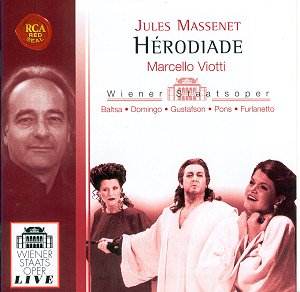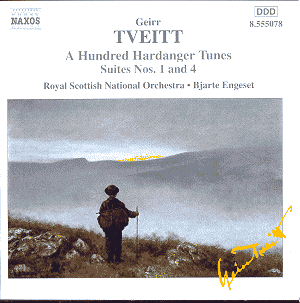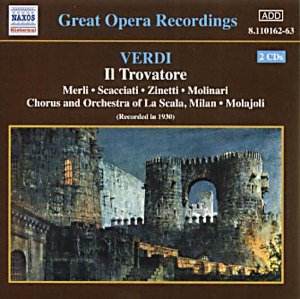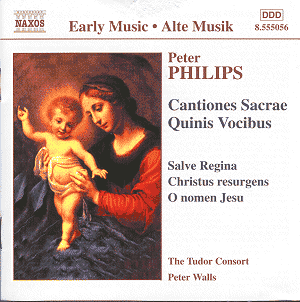 Composer: Jules Massenet
Composer: Jules Massenet
Works: Hérodiade
Performers: Plácido Domingo (John the Baptist), Juan Pons (Herod), Agnes Baltsa (Hérodiade), Nancy Gustafson (Salomé), Ferruccio Furlanetto (Vitellius), Hans Helm (High Priest), David Calne Johnson (A Voice), Chorus of the Wiener Staatsoper, Orchestra of the Wiener Staatsoper
Recording: Live, Wiener Staatsoper, 12 February 1995, recorded by Austrian Radio (ORF)
Label: RCA Red Seal/BMG
Massenet’s Hérodiade, first premiered in Brussels in 1881, occupies a unique place in the operatic canon, situated between his earlier Le Roi de Lahore and his later masterpiece, Manon. This opera draws on the biblical story of Salomé and John the Baptist, yet Massenet’s interpretation diverges notably from the more familiar, decadent rendering of Oscar Wilde. Here, Salomé is not the femme fatale but a tragic figure caught in a web of familial betrayal and unrequited love. This live recording from the Wiener Staatsoper captures the opera’s lush melodic language and complex emotional landscape with a vibrancy that brings Massenet’s rich harmonic palette to life.
Plácido Domingo’s portrayal of John the Baptist is a standout, demonstrating both the character’s fervent defiance and tender vulnerability. His voice resonates with a powerful gravitas, particularly in the arias where he expresses his contempt for the corrupt rulers. Domingo’s interpretation is marked by an impressive balance between his noble defiance and the deep inner turmoil he faces, particularly in moments such as “Il est doux, il est bon” where his soaring lines convey a profound sense of yearning. The orchestral support under Marcello Viotti is equally compelling, with the Wiener Staatsoper Orchestra delivering the score’s exotic orchestrations with precision and color, particularly in the vivid depiction of the majestic Roman marches and the intricate Jewish choruses.
Agnes Baltsa’s Hérodiade is equally formidable, embodying the character’s emotional extremes with both ferocity and poignancy. Her capacity to convey jealousy and despair is palpable, particularly in Act II, where her outbursts against Herod reveal layers of complexity in her motivations. Juan Pons as Herod straddles the line between villainy and tragic folly with admirable nuance, his characterization avoiding the pitfalls of caricature while still portraying the character’s lustful desperation. Nancy Gustafson’s Salomé, too, is notable; her portrayal captures the delicate balance of revulsion and affection, particularly in her interactions with Domingo, lending a palpable tension to their duet.
The recording quality is commendable, enhancing the live experience without losing clarity. The sound engineering allows for a rich tapestry of orchestral colors to emerge, with the brass fanfares ringing triumphantly and the strings weaving a lush backdrop to the vocal lines. The atmospheric setting of the Wiener Staatsoper is palpable, creating an immersive experience that draws listeners into the opera’s intense emotional narrative.
When compared to other notable recordings of Hérodiade, such as the 1993 version featuring the same cast but under different circumstances, this live interpretation stands out for its immediacy and raw emotional power. The audience’s palpable engagement enhances the performance, making it not just a recounting of the narrative but a lived experience of the characters’ struggles.
This recording of Hérodiade emerges as a significant contribution to Massenet’s legacy, showcasing a strong cast under Viotti’s insightful direction. The emotional depth and musical intricacy captured here affirm the opera’s place as a high point in Massenet’s oeuvre, revealing the composer’s ability to blend lush melodies with profound psychological insights. The combination of Domingo’s compelling portrayal, Baltsa’s fiery interpretation, and a robust orchestral performance creates a compelling listening experience that resonates long after the final notes fade away.



